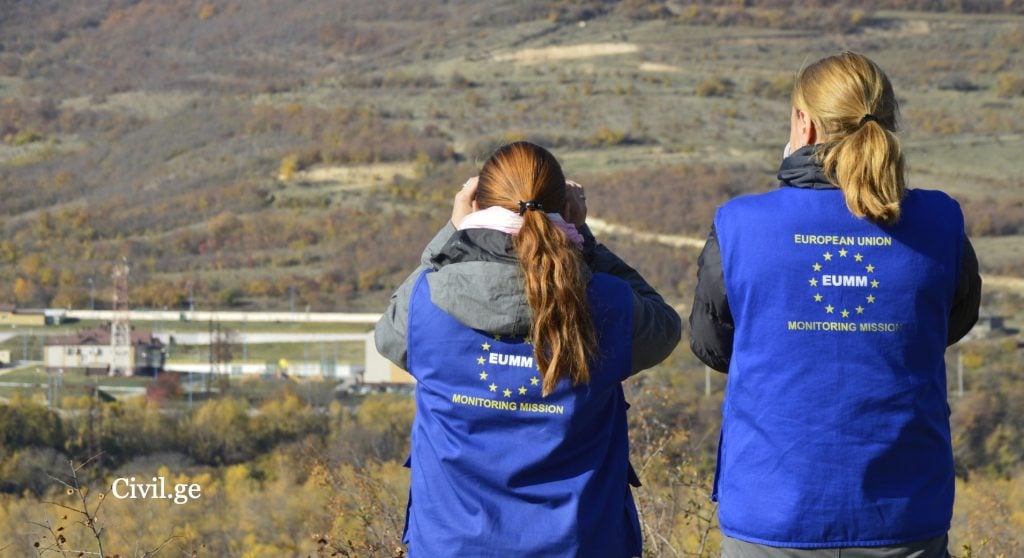The EU Monitoring Mission (EUMM) released a statement on May 21, denouncing Tskhinvali media outlets’ reporting of its activities along the dividing line by as “inaccurate” and containing “completely false references.”
According to the statement, several Tskhinvali/South Ossetian media outlets alleged that EUMM’s private vehicles (ambulance cars), while on a mission near along the dividing line with the occupied region on April 26, were “in fact” used to collect specimen from locals – intended for use in Georgia’s Lugar laboratory, U.S.-funded bio lab subsidiary of the Georgian National Center for Disease Control and Public Health.
EUMM clarified that ambulances have always accompanied its patrols, “as a standard precautionary measure,” while Mission’s “duty of care” towards its personnel obliged it to “swiftly provide the necessary help in case of need,” such as a car accident.
The monitoring body denied allegations about “collection of sample” and stressed that “there was no intent to do so.”
EUMM highlighted that Kremlin-backed Tskhinvali authorities were “aware of these facts,” as they had been notified about patrolling visits in advance via Mission’s hotline service.
EUMM reiterated “utterly impartial” approach to its duty and vowed to “closely observe the situation” on the ground along the dividing line on a daily basis.
This post is also available in: ქართული (Georgian) Русский (Russian)

